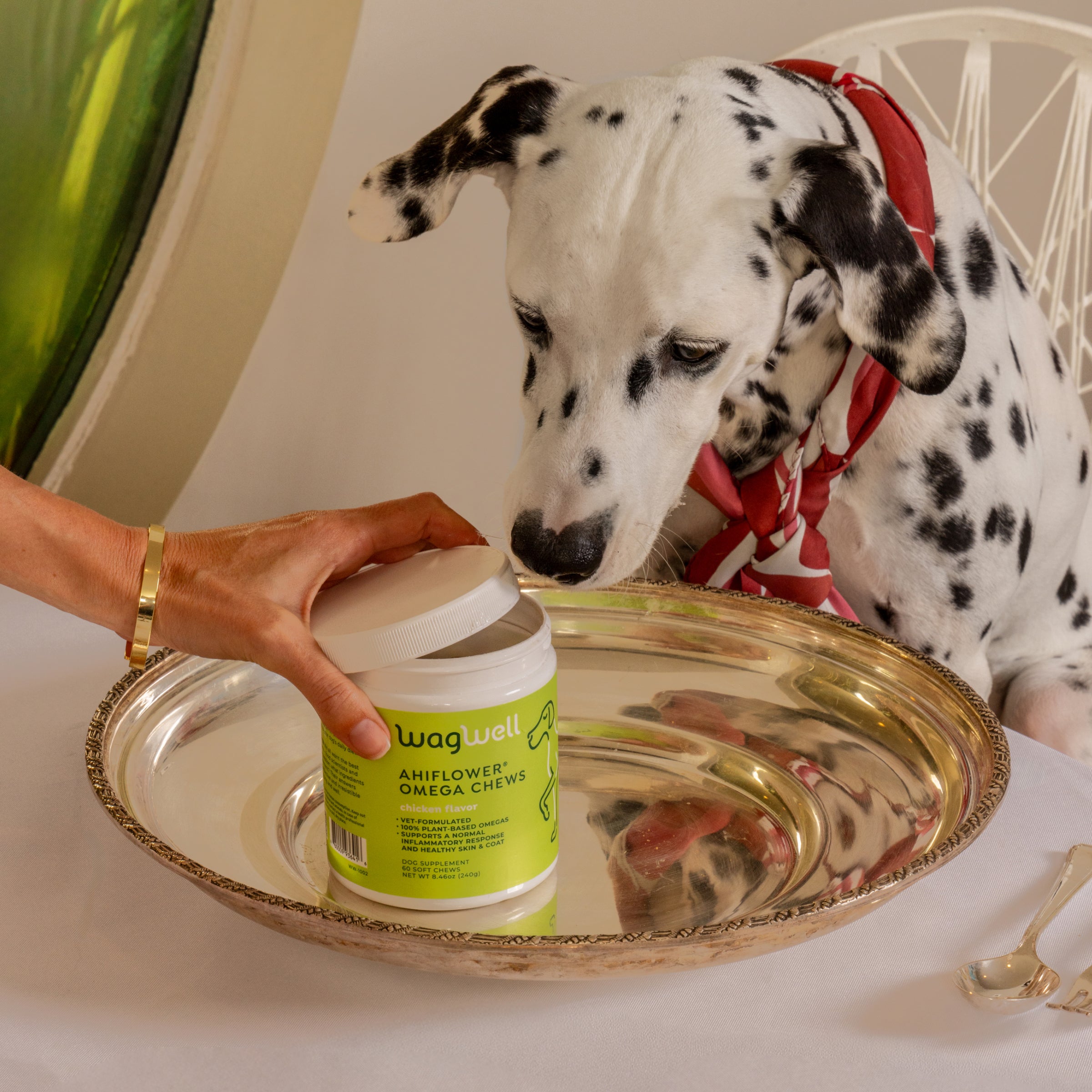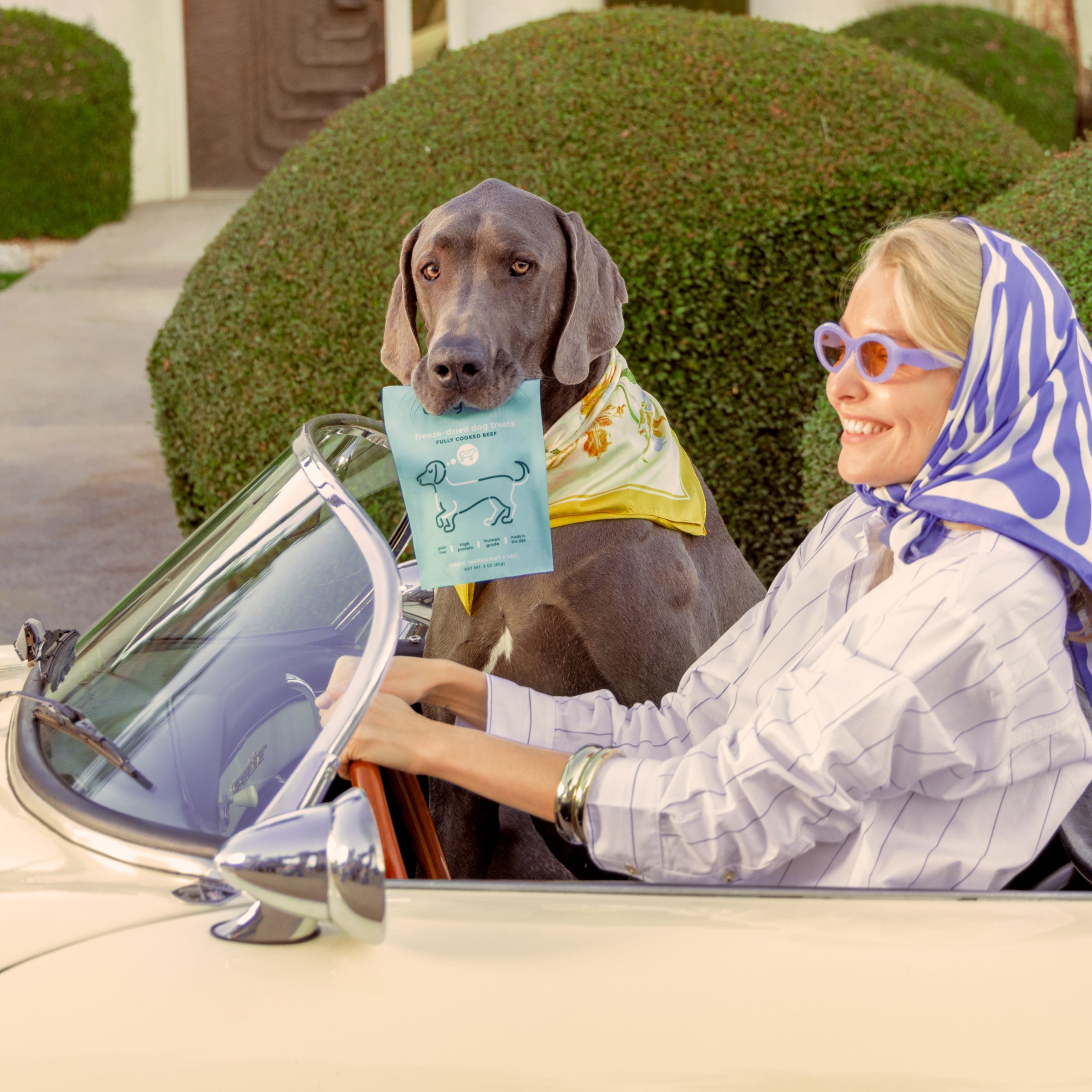Puppy dog eyes are irresistible—especially when you are preparing dinner. It can be tempting, (and let’s be honest, sometimes impossible!) to not slip your pup a little of what you are cooking to appease those sweet, begging eyes. However, our dogs’ physiology is completely different from ours and something beneficial to us can be deadly to them. Especially around the holidays, all pet parents should know what should be off-limits to their dogs.
Allium Plants
Along with garlic and onion, this family of plants includes shallots, leeks, chives, and anything else with a garlicky or onion taste. Eating too much could damage red blood cells and cause anemia. It is important to note that symptoms could be delayed from when your dog first consumes them.
Xylitol
Xylitol, which is also shown on food packaging as “birch sugar” or “wood sugar,” is found in many different processed products as an artificial sweetener. Xylitol prompts insulin release in dogs which can lead to liver failure. Symptoms of xylitol poisoning include vomiting, seizures, and lack of coordination. This is often found in peanut butter, so make sure you get a xylitol-free PB for your pup.
Cooked Bones
Cooked bones can seem innocuous when you give your dog a bit of rotisserie chicken but they can have dangerous side effects. Cooked bones are much softer and more brittle than normal bones and can splinter in the stomach of your dog if they consume them. Skip the bones!
Fruits Seeds and Pits
Certain seeds and pits contain cyanide. These fruits include apples, cherries, plums, apricots, peaches, and nectarines. Cyanide is more harmful to smaller dogs as it takes a smaller dose to cause serious issues, but that doesn’t mean it cannot harm large dogs as well. Cyanide poisoning will result in vomiting, irregular or fast heartbeats, seizures, comas, and even death. Whole seeds also pose less of a risk than crushed seeds or pits.
Avocados
Watch out for the guac. Avocados contain a chemical called persin which is dangerous for your dog. Persin is a fungicidal toxin, and while dogs are more resistant than other animals, it can still have terrible consequences if your dog consumes it. Persin causes vomiting, diarrhea, and myocardial damage (dog-speak for heart attack).
Macadamia Nuts, Almonds, and Pistachios
These are some of the most lethal foods for dogs. Scientists and vets are unsure as to what causes the reaction in dogs, but these nuts should never be offered to your pet. These nuts cause vomiting, elevated body temperature, an inability to walk, and weakness. Their nervous system could also be at risk for damage if they consume these nuts.
Mushrooms
Mushrooms can contain a variety of toxic components that could cause kidney or liver failure, vomiting, diarrhea, damage to red blood cells, and hallucinations. Some say that the white mushrooms from the grocery store are safe, but we think it’s better to err on the side of caution.
Raw Potatoes and Green Tomatoes
Another toxic chemical for dogs is solanine. While cooked potatoes and ripe, red tomatoes are safe for your dog to consume, other forms of these foods are dangerous. Raw potatoes and green tomatoes (whether unripe tomatoes or regular green tomatoes) contain solanine which can lead to severe gastrointestinal issues such as vomiting and diarrhea, lethargy, weakness, and confusion.
Chocolate, Caffeine, and Coffee
Chocolate, caffeine, and coffee are a human’s dream combination, but a dog’s worst nightmare. These foods contain a toxic compound called methylxanthine. This substance causes a dog’s metabolism to stop and can cause gastrointestinal issues. Large amounts can lead to seizures, difficulty breathing, irregular heartbeat, and death.
Raw Bread Dough
Baked bread is safe for dogs, but you should never give them raw dough when it contains yeast. Yeast dough produces large amounts of gas that when contained inside the intestinal tract of a dog, can cause a fatal condition called gastric bloat. Additionally, as a part of the fermentation process, yeast creates ethanol. Ethanol is a pure form of alcohol and is not safe for dogs as it could lead to alcohol toxicity.
How to Protect Your Dog
Holiday party and company-is-coming-over season is the perfect time for your dog to accidentally eat some of these popular holiday foods. It’s important to be diligent not just what you have at the table, but what’s in the trash can or being prepared on the counter. If your dog is prone to getting into the trash or wherever you store food, it is a good idea to invest in locks to keep them safe. Always tell your guests not to feed your dog table scraps. They might not be aware of the dangers of some human foods.
It’s a fun time of year! If you keep yourself informed, you and your pup will be able to enjoy yourselves all season long. Remember if you notice any of the symptoms above, and there is a small chance they might’ve eaten something toxic, call poison control and immediately take them to a vet.


